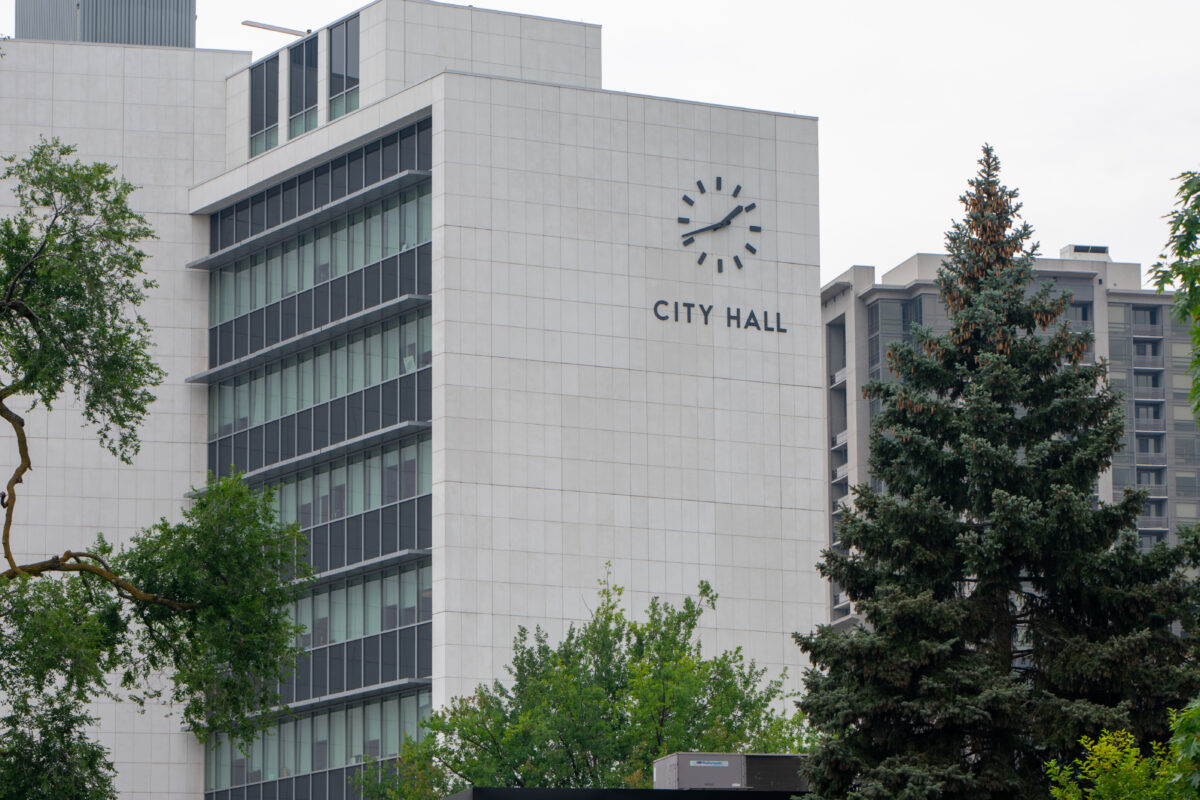Hamilton’s Realtors will be at City Council on Wednesday in force as they mobilize opposition to implementing a local land transfer tax.
In May 2024, City Council voted to request a report on new revenue options to address the City’s annual deficits.
The information report, included in the January 15 agenda, outlines the pros and cons of implementing higher parking levies, a local alcohol and tobacco sales tax, and a local “tiered land transfer tax.”
The Cornerstone Association of Realtors, and the West End Homebuilders, both oppose a land transfer tax. The realtors have commissioned a public opinion study, which they will present to Council when they delegate on Wednesday.
In a message posted on social media, the realtors’ association encourages its members to fill every seat “at City Hall to show our strong opposition to this double tax.”
Land Transfer Tax
City staff write a land transfer tax model on Toronto’s structure and rates could generate approximately $117-million annually for the City.
Toronto’s land transfer tax is charged at 2.0 percent of transaction value for most of real estate sales. The rate increases for transactions above $2,000,000 with progressive increases until it reaches a maximum 7.5 percent for sales over $20,000,000.
“Real estate market fluctuations can lead to significant deviations from projected revenues, particularly during economic downturns,” the report notes. “Due to this volatility, the City of Toronto moved away from relying on 100% of Municipal Land Transfer Tax as a funding source for the operating budget.”
Hamilton staff suggest a partial rebate could be implemented for first-time home buyers to “ensure that the MLTT does not disproportionately impact younger or lower-income residents.”
Hamilton staff state a land transfer tax could be implemented “within one year from the time of Council approval.”
Alcohol and Tobacco Tax
The City can request the Province of Ontario to allow the implement of local taxes on alcohol and tobacco. City staff write that a 10 percent tax could yield $31 million annually from alcohol sales and approximately $2 million annually from tobacco sales.
Increasing Downtown Parking Levy
The City of Hamilton can create a new parking levy tax to be imposed against non-municipal parking facilities in Downtown Hamilton.
Annual levies can be calculated based on the size of parking lots or as a percentage of revenue.
“In Canada, both Montreal and Vancouver have introduced parking levies to fund urban infrastructure and promote sustainable transportation choices. Since 2010, Montreal’s parking levy has targeted off-street parking facilities using a graduated rate structure based on the facility’s location within four designated sectors. The levy charges higher rates in Montreal’s central business district, with fees varying between $12.45 and $50.10 per square meter for indoor and outdoor parking, respectively. Vancouver has a 24% parking levy, which brought in $69 M in 2023,” the report reads.
Hamilton will need to hire a consultant to conduct a study to determine the potential revenues a parking levy could generate.
No Recommendations in Report
Acting Director of Financial Planning, Administration and Policy Kirk Weaver makes no recommendations in his report.
Because it is an information report, City Council can vote to receive it with no further action to be taken.
Production Details
v. 1.0.0
Published: January 12, 2025
Last updated: January 12, 2025
Author: Joey Coleman
Update Record
v. 1.0.0 original version


Seems illegitimate to increase downtown parking when the city doesn’t offer a rapid transit system. Other cities mentioned in the article do have very effective alternatives to driving your own car. Similarly, increasing land transfer taxes to make the city even less inviting to live here. Really? And adding burdens to small businesses by introducing new sin taxes? Just another disincentive to be in Hamilton. Look under our own roof Andrea – a dollar saved is better than a dollar earned.
The tobacco tax will simply drive more smokers into the black market.
Like the tax payer is some endless cash cow… You can’t get blood from a stone guys!
Or maybe they could engage in some level of austerity during this time of economic uncertainty. The average tax payer has certainly had to tighten their purse strings just to keep their head above water. Poor policy got us here, and instead of taking responsibility, those same policy makers take ever more off your table.
The report is for information at this time. We’ll have to see what Council does on Wednesday.
Couldn’t agree more Nick. I sent my ward councilor an email to that same effect, I encourage you to do the same before tomorrow’s meeting.
Parking levy sounds interesting. I don’t really mind that one at all.
Is the Alcohol and Tobacco tax a sales tax? Added on to the purchase price at the time of checkout like HST? If so, especially with alcohol now being sold in variety stores could be very burdensome on those small businesses.
Thanks for all the great reporting today Joey.
When alcohol and beer sales were controlled by 2 entities, governments sat back and got 2 cheques a year and if they wanted to milk those cash cows, they simply said ‘here’s a bucket fill it’. Now they will have to chase 1,000s of new collectors